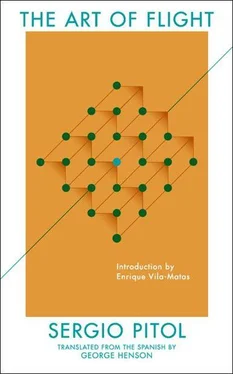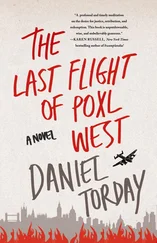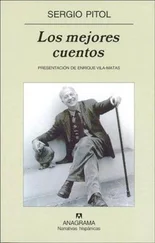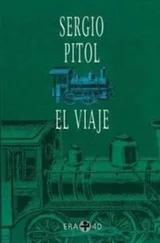Sergio Pitol - The Art of Flight
Здесь есть возможность читать онлайн «Sergio Pitol - The Art of Flight» весь текст электронной книги совершенно бесплатно (целиком полную версию без сокращений). В некоторых случаях можно слушать аудио, скачать через торрент в формате fb2 и присутствует краткое содержание. Год выпуска: 2015, Издательство: Deep Vellum, Жанр: Современная проза, на английском языке. Описание произведения, (предисловие) а так же отзывы посетителей доступны на портале библиотеки ЛибКат.
- Название:The Art of Flight
- Автор:
- Издательство:Deep Vellum
- Жанр:
- Год:2015
- ISBN:нет данных
- Рейтинг книги:5 / 5. Голосов: 1
-
Избранное:Добавить в избранное
- Отзывы:
-
Ваша оценка:
- 100
- 1
- 2
- 3
- 4
- 5
The Art of Flight: краткое содержание, описание и аннотация
Предлагаем к чтению аннотацию, описание, краткое содержание или предисловие (зависит от того, что написал сам автор книги «The Art of Flight»). Если вы не нашли необходимую информацию о книге — напишите в комментариях, мы постараемся отыскать её.
The first work in Pitol's "Trilogy of Memory," The Art of Flight imaginatively blends the genres of fiction and memoir in a Borgesian swirl of contemplation and mystery, expanding our understanding and appreciation of what literature can be and what it can do.
The Art of Flight — читать онлайн бесплатно полную книгу (весь текст) целиком
Ниже представлен текст книги, разбитый по страницам. Система сохранения места последней прочитанной страницы, позволяет с удобством читать онлайн бесплатно книгу «The Art of Flight», без необходимости каждый раз заново искать на чём Вы остановились. Поставьте закладку, и сможете в любой момент перейти на страницу, на которой закончили чтение.
Интервал:
Закладка:
We dined outdoors, on a terrace; I ended up sitting in the middle of a small group of professors and beside María José and Antonio Tabucchi. I do not know how I came up with the topic, what provoked it, whether the Devil made me do it, but suddenly I heard myself telling the story about the escape and death of Carranza — yes, the departure of Don Venustiano from Mexico City and his tragic final hours! — the arrival of the president and his entourage to Buenavista station, the commotion, the chaos that reigned, the hundreds of coaches, one containing the national treasury; another the official archives, the first desertions, and then, during the trip, the different attacks of which the presidential train was a target, the lack of water and coal for the engines, the telegram from the governor of Veracruz refusing to recognize him as head of State, the impossibility of going on and of turning back, his flight on horseback to the village of Tlaxcalantongo, the final bullet that cut short his life.
Where was all of this going? To talk for two hours in great detail about the flight and death of a Mexican president from the revolutionary period whom no one knew, on the terrace of a country house near Siena! Suddenly, I realized that the only person in the group speaking was me; by then we were having coffee, and the guests were beginning to say goodbye.
I would have liked for Tabucchi to clarify moments from The Edge of the Horizon , to talk about one of the stories that I liked most, “Saturday Afternoon,” to know more about his interest in Portugal, in Pessoa, to talk, if he wanted, about what he was writing. I emerged from what seemed like a trance and was horrified, more embarrassed than I had ever felt. I apologized as best as I could and added that I was usually rather quiet, which is true, that the parrot I had become was a side to my personality that I did not even know. And María José, with a smile for which I shall forever be thankful, told me that she thought my story about the old president was both tragic and beautiful. Tabucchi presented a small book to me before I left; the text of a lecture he had given not long before in Tenerife. When I got back to the hotel, I read it in one sitting, and once again I was impressed by the quality of his intelligence. I felt even more embarrassed.
In short, it was one of those nights when one would rather be shot.
Xalapa, April 1996
WRITING
THE NARRATOR
Thinking about the foreboding moments of a work of fiction inevitably takes me back to that famous interview in which William Faulkner confessed that the inspiration for one of his novels came from seeing the “drawers” of a little girl who was attempting to climb a tree. Day after day, he would see those panties and that tree at the most unexpected times. He would pour himself a whiskey, and the intimate garment would appear among the ice cubes; he would try to read a newspaper, and the little girl’s thighs would appear floating on the printed page; he would see a puckered and wizened neighbor woman walk down the street, and could not help but superimpose the small buttocks of the girl who was climbing the tree on the behind of that dismal advertisement against lust. That initial image would begin at some moment to branch out. It occurs to me that one day the writer must have imagined a little boy beneath that tree who struggled between shame, humiliation, and the animal need to stare at the naked legs and intimate garment of the little girl who was his sister. There, in a nutshell, is the essence of one of the most extraordinary novels of our century, which recounts Quentin Compson’s erotic attraction for his sister Caddy and its tragic development. Its title: The Sound and the Fury.
At times, this first incitement surfaces, for a moment or for several days, then troubles the eventual author, only to later withdraw inexplicably into one of the blackest holes of memory, waiting for the opportune moment to reappear with accumulated strength. No one can predict how long the inspiration will take to mature. It can be a matter of days or decades. At twenty, Thomas Mann sketched the outline of a novel that he would write fifty years later, Doctor Faustus , a book that would be enough to guarantee immortality for any author.
The paths to creation are imprecise. They are full of wrinkles, mirages, delays. They require the patience of a saint, a good deal of abandonment, and, at the same time, an iron will in order to not succumb to the traps the unconscious lays to block the writer. It is well known that the struggle between Eros and Thanatos always lies at the root of creation. But the end of the battle is always unforeseeable.
I spent my childhood at a sugar mill in Potrero, Veracruz, a place, without a doubt, as unhealthy as the farms in New Guinea, the Upper Volta, or the Amazon must have been during the same period. Between brief intervals of physical activity there were long periods during which I was bedridden with fevers caused by malignant tertian malaria. Reading became my only pleasure. I gladly and by necessity became a full-time reader. From the usual childhood readings — all of Verne, Treasure Island, The Call of the Wild, The Adventures of Tom Sawyer —I dove into the novels of Dickens, and then, without delay, into Creole Ulysses by Vasconcelos, War and Peace , the Mexican poets of the Contemporáneos group, Freud, Proust, D.H. Lawrence, and foreign languages. I read everything that fell into my hands. I reached adolescence carrying an almost unbearable weight of readings. If one adds to this the fact that I lived at my grandmother’s house, and that the only people who frequented the house were her sister-in-law, her childhood friends, and, occasionally, her near one-hundred-year-old nanny, who did everything possible so the conversation would avoid any contemporary topic and remain frozen in a kind of vanquished utopia, a subverted Eden, the world before the Revolution, when one could travel to take waters, not just in Tehuacán but also in Italy — to reclaim a health that ultimately served no purpose, since the time that was worth living had been left behind, lost and destroyed — my subsequent destiny can be understood. If one adds to the accumulation of poorly digested readings the incessant flow of oral literature intended to keep the house removed from the present, and thus from reality, it is not at all surprising that at some point I would pass from the category of reader to that of aspiring writer.
I arrived in the capital at sixteen to take classes at the university. Although I enrolled in law school, I spent most of my time in the Faculty of Philosophy and Letters. If it is true that the latter was, overall, much more attractive than law — going from classes on the history of historiography to those on medieval Italian literature, and from the history of modern art to the literature of the Golden Age, was infinitely more pleasing than attending classes in law school, where I was forced to listen to incomprehensible disquisitions on business law or civil procedure—, it is also true that I owe the direction of my destiny toward and for literature to law school, and in particular to one teacher, Don Manuel Martínez de Pedroso, professor of Theory of the State. The students who were most committed to the study of law, the most organized, those with the best grades in all their subjects, disoriented by the absence of a previously established syllabus and the maestro’s refusal to designate a textbook, defected two or three weeks after the beginning of the term. Don Manuel Pedroso was one of the most cultured persons I have ever known, and perhaps, for that reason, there was nothing bookish about him. His sense of order was demonstrated in the most oblique way one could imagine. Once only a handful of faithful remained in his class, the maestro from Seville would begin his paideia in earnest. He imparted it in the most heterodox way conceivable at that time — and possibly any other — for the teaching of law. Pedroso would talk to us about the ethical dilemma embedded in Dostoyevsky’s “The Grand Inquisitor”; about the antagonism between obedience to power and free will in Sophocles; about the notions of political theory expressed by the Henrys and the Richards in the historical dramas of Shakespeare; about Balzac and his dynamic conception of history; about the points of contact between the Renaissance utopists and their antagonists — which for Pedroso were only superficial — the theorists of political thought, the first visionaries of the Modern State: Juan Bodino and Thomas Hobbes. Sometimes in class he would lecture at length about the poetry of Góngora, whom he preferred to any other Spanish-language poet, or about his youth in Germany, where he carried out the first Spanish translation of Das Kapital and Frank Wedekind’s Spring Awakening , one of the first expressionist plays to circulate in the Hispanic world; about his activities during Spain’s civil war during which, from the beginning, his title of marqués did not prevent him from placing himself at the service of the Republic; about his experiences in the terrifying Moscow of the Great Purge, where he was the last ambassador of the Spanish Republic. He frequently thrashed us with caustic sarcasm, but he also celebrated our victories. Pedroso urged us to read, to study languages, but also to live. He enjoyed the stories we’d share with him, inventing some details and exaggerating others, about our nightly rounds through a circuit of dives from which we miraculously escaped unscathed. One of the triumphs of the Mexican baroque manifested itself at the time in the complexity of the capital’s nightlife, governed and lived with unbounded imagination. It seems that the sense of danger one experienced upon entering one of those dives was the product of impeccable staging and mise-en-scène , spaces that were in no way innocent but also enormously entertaining and not at all dangerous. With Pedroso, the temptations of the world lived in harmony with the rigors of knowledge. Humor was one of his key traits. Even the most dramatic episodes of the civil war could, just before reaching the height of pathos, be transformed into an endless parade of scenes of indescribable comedy. When the term ended, one knew the theory of the State with greater clarity than those students who deserted to drink from more canonical waters. Carlos Fuentes and Víctor Flores Olea have written excellent pages about him.
Читать дальшеИнтервал:
Закладка:
Похожие книги на «The Art of Flight»
Представляем Вашему вниманию похожие книги на «The Art of Flight» списком для выбора. Мы отобрали схожую по названию и смыслу литературу в надежде предоставить читателям больше вариантов отыскать новые, интересные, ещё непрочитанные произведения.
Обсуждение, отзывы о книге «The Art of Flight» и просто собственные мнения читателей. Оставьте ваши комментарии, напишите, что Вы думаете о произведении, его смысле или главных героях. Укажите что конкретно понравилось, а что нет, и почему Вы так считаете.












